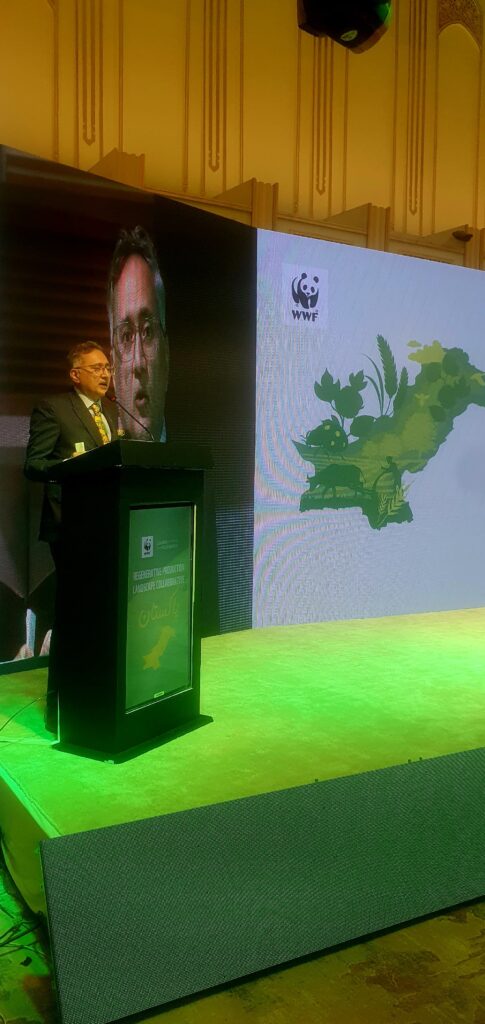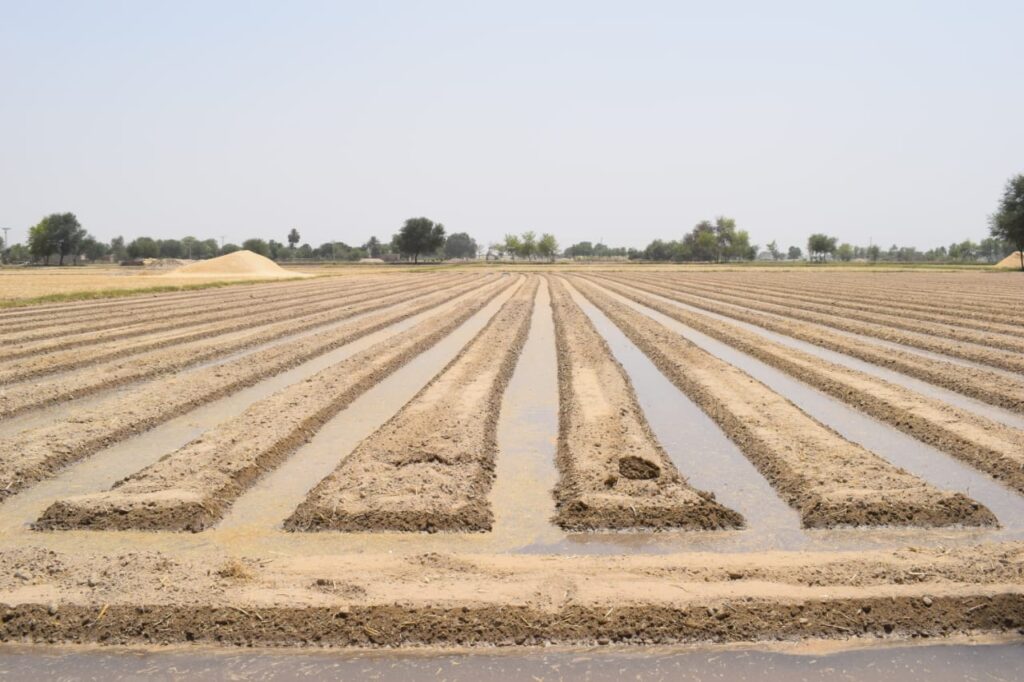
Water security, biodiversity conservation, and local livelihoods stressed at the workshop.
agriculture faced major issues of excessive use of water, chemicals and pesticides impacting the crop and soil productivity,
Islamabad : WWF-Pakistan, with catalytic funding from Laudes Foundation, launched the Regenerative Production Landscape Collaborative (RPLC) Pakistan to drive new business models and farming practices that holistically tackle current challenges faced by smallholder farmers and address the environmental issues resulting from unsustainable practices.
Supported by textile and food brands, RPLC Pakistan will be implemented in the Jhang and Sahiwal districts of Punjab and Barkhan and Lasbela districts of Balochistan. The initiative offers a demonstrable approach to landscapes that has already seen success in India, Brazil, and Tanzania.

Speaking at the launch event, Hammad Naqi Khan, Director General, WWF-Pakistan, shared that the initiative addresses the long-term challenges of unsustainable agricultural practices in Pakistan. Highlighting that agriculture faced major issues of excessive use of water, chemicals and pesticides impacting the crop and soil productivity, which is further aggravated by climate change, he noted that this has led to increasing vulnerabilities of local communities and smallholder farmers. “To address these challenges, this initiative will enhance collaborative actions and develop innovative strategies which help farmers to develop climate resilience and improve the agricultural yield”, he added.
Addressing the workshop virtually, Anita Chester, Head of the Fashion Programme at Laudes Foundation shared that “Laudes Foundation is incredibly pleased to see the RPLC launch in Pakistan supporting the local ecosystem towards sustainable and regenerative practices. We are confident in the leadership of WWF-Pakistan in driving the collaborative forward, fostering collaborations with regional players, supporting local farmers and communities to becoming self-sufficient and financially independent and galvanising communities towards better practices enabling businesses to source responsibly. Today, the RPLC is planned to cover globally, over a 1 million hectares, and over 300,000 farmers. In Pakistan specifically, this will cover over a 100,000 hectares and benefit over 50,000 farmers. The approach has already made significant strides in many regions, including India, Brazil, and Tanzania, demonstrating the scalability of this approach.”
Speaking at the workshop, Ghulam Muhammad Ali, Chief Guest, and Chairman Pakistan Agricultural Research Council (PARC) said that the project will help smallholder farmers and crop growers to improve crop productivity and income generation capacity. Furthermore, he noted that it will benefit them in that the use of fertilizers and pesticides will be significantly reduced through adaptation of sustainable farming practices. He added that key problems in crop productivity result from the extensive use of chemicals that harm the ecosystem and soil fertility. He also emphasized the need to promote nature-based solutions, which will help to reduce the negative impacts of climate change and improve sustainable farming practices. He expressed appreciation of the combined efforts of project funders, implementers, and partners in this initiative.
Climate change is posing a serious challenge to Pakistan’s economy, agriculture, and natural landscape. More than 1,700 people died in devastating floods and widespread rains in 2022. The need to address these events in Pakistan is urgent and requires governance and policy changes that address specific challenges impacting the different sectors.
Qadir Baksh Pirkani, Special Secretary Agriculture, Government of Balochistan shared that despite the challenges emerging from climate change, water scarcity, poor infrastructure, and limited market access, Balochistan has great potential to contribute to the agriculture sector, adding that the province has 3.47 million hectares of cultivable land. He underscored the need to invest in agriculture and build the capacity of vulnerable farmers on sustainable agricultural practices to mitigate the supply-chain risks caused by climate change. He also noted appreciation for the project interventions and committed to supporting sustainable agricultural practices.
Asad Imran, Director Foods and Markets, WWF-Pakistan provided an overview of the project saying that this five-year initiative calls for systematic changes towards a landscape-based approach which can further halt and reverse the productivity losses resulting from land degradation and climate change. Restoring and revitalizing the health of the soil, this project will improve management and conservation of water resources. At a social and economic level, it would enhance the capacity of smallholder farmers to generate income and empower local women farmers by engaging them in different interventions.